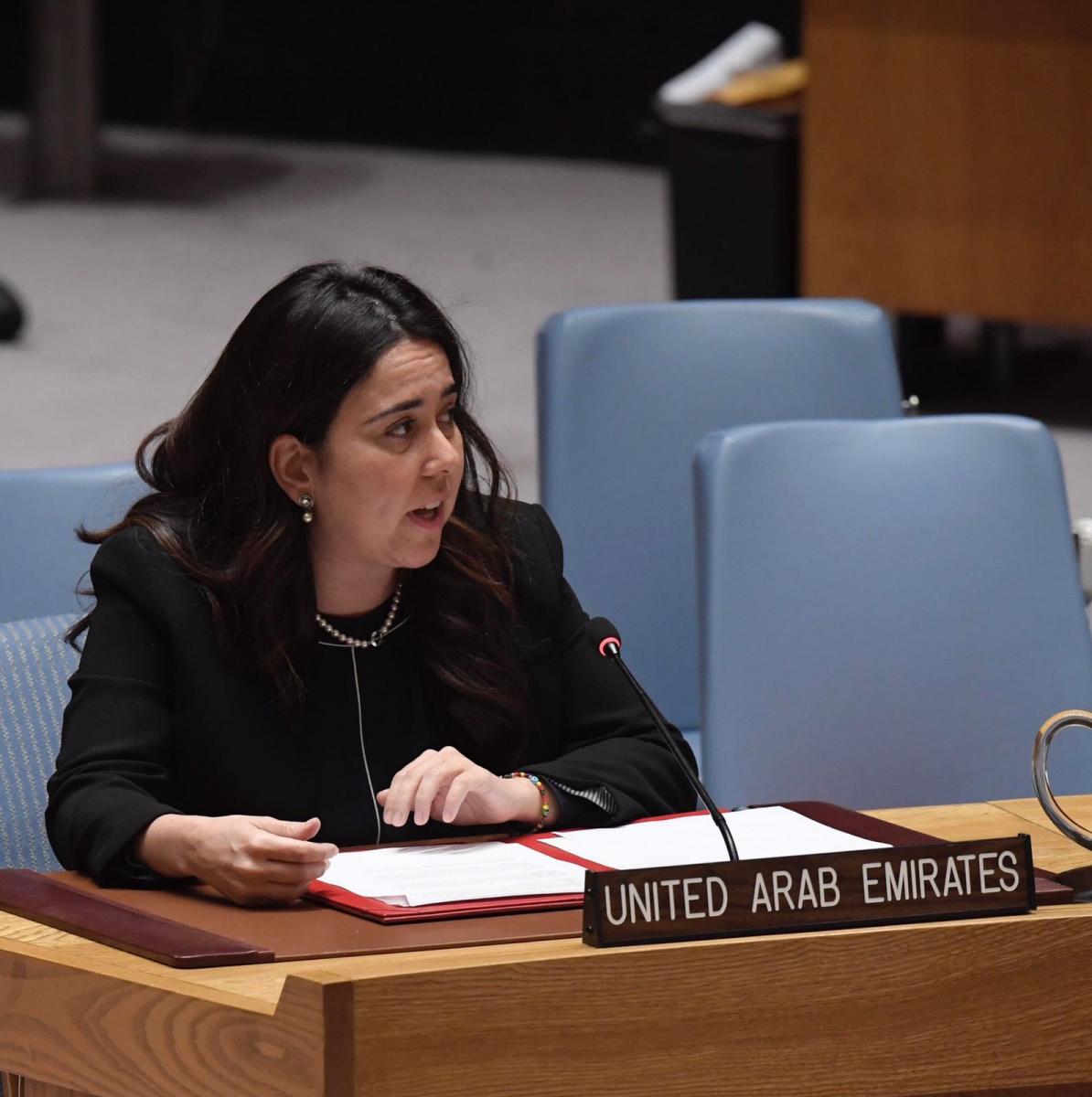NEW YORK – Her Excellency Mrs. Lana Nusseibeh, Ambassador and Permanent Representative of the United Arab Emirates to the United Nations in New York, delivered the UAE’s statement at the Security Council’s Open Debate on the protection of civilians and medical care in armed conflicts. Ambassador Nusseibeh highlighted that as a co-sponsor of [Security Council] Resolution 2286, the UAE is deeply committed to protecting civilians and medical care in conflict situations, and that support of healthcare provision around the world is a critical element of the UAE’s foreign aid strategy.

Ambassador Nusseibeh stated that the UAE condemns the targeting of medical facilities in Syria and calls for unobstructed delivery of humanitarian aid, as well as accountability for crimes committed by the Syrian regime, supported by Iran. Ambassador Nusseibeh noted that in Afghanistan and Somalia, medical care was at risk being targeted by terrorist groups, not only threatening the welfare of civilians, but also potential long-term stability of the countries. She also paid tribute to the late UAE Ambassador to Afghanistan, Mr. Juma Mohammed Abdullah Al Kaabi, who was killed in a terrorist attack in Kandahar, whilst on a humanitarian mission. Ambassador Nusseibeh called on Israel to end its blockade of Gaza, that has impacted the already diminished healthcare infrastructure, leaving many Palestinians without required medical treatment.
With regards to the conflict in Yemen, Ambassador Nusseibeh expressed that the UAE condemns the Iran-backed Houthi rebel groups’ use of hospitals to hide military supplies, and that ensuring humanitarian access to civilian populations must remain a priority for all parties. In her statement, she added that as a Mmember of the Coalition to Restore Legitimacy in Yemen, the UAE is committed to working with major healthcare and aid agencies to ensure the needs of the civilian population are addressed safely. Ambassador Nusseibeh highlighted that to date, the UAE’s relief efforts are focused on restoring and improving the country’s medical facilities and infrastructure. She explained that the UAE has built or reconstructed 40 hospitals and clinics, and provided medical resources acrossYemen.
She reaffirmed the UAE’s commitment to its obligations under international humanitarian law. Reflective of the UAE’s championing of gender equality, Ambassador Nusseibeh noted, “the UAE emphasizes the importance of gender-responsive medical care in armed conflict to ensure women and men have equal access to health services.” She urged all those involved in the design and delivery of humanitarian relief to commit to the inclusion and participation of women in the process.
Ambassador Nusseibeh concluded her statement by announcing to the Council the UAE’s three-fold commitment to the protection of medical care in armed conflict. First, the UAE will continue to build its capacity to uphold to international humanitarian law. Second, the UAE will advance partnerships with the UN and support for humanitarian organizations. Third, the UAE will continue its work to elevate the role of women in the design and delivery of healthcare and humanitarian relief. In this regard, she commended the work by the Inter-Agency Standing Committee’s Reference Group on Gender and Humanitarian Action, and recommended that UN Women be included among the Committee’s members.
